Are you feeling overwhelmed by the constantly evolving digital landscape?
You’re not alone. Navigating the world of digital marketing can be daunting, but it doesn’t have to be.
In this comprehensive guide, we’ll demystify effective digital marketing strategies for 2023 and beyond, shedding light on how to effectively use SEO, content marketing, email marketing, and more. We’ll even deep dive into the exciting role of AI in digital marketing.
By the end, you’ll feel confident in your ability to implement or re-evaluate your digital marketing strategies for maximum impact.
1. Video Marketing
The first and perhaps the most promising digital marketing strategy since AI, AI searches, and social media are changing the way how users are consuming information online is video marketing.
Video marketing is becoming one of the most crucial digital marketing strategies as it can help you increase your brand awareness, build relationships with customers and prospects, and ultimately drive you more business.
The importance of video marketing in today’s digital landscape cannot be overstated.
And here are the three biggest benefits:
- Enhances Engagement: Videos have a unique ability to catch the eye and keep viewers engaged. With the human brain processing visuals 60,000 times faster than text, videos are a great way to deliver your message in an easily digestible format. They can simplify complex information and make it more appealing to your audience, which can lead to increased engagement.
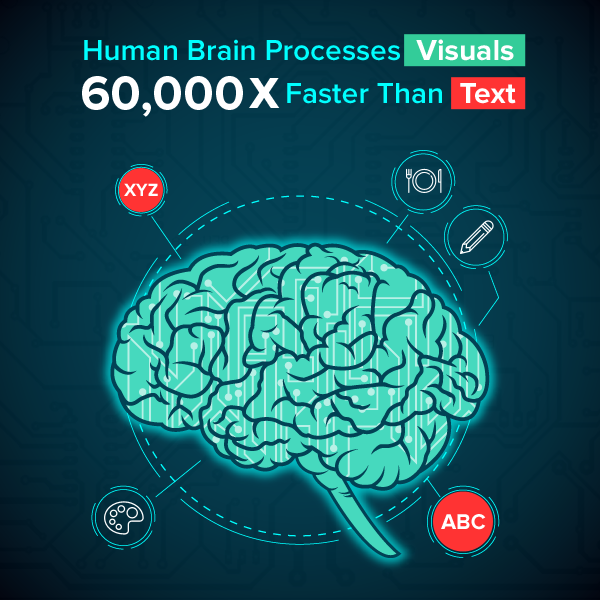
- Boosts Conversion Rates: Studies have shown that incorporating videos on landing pages can increase conversion rates by 80%. Additionally, customers are more likely to purchase a product after viewing a video about it. This is because videos can provide a comprehensive overview of a product or service, helping customers make more informed decisions.
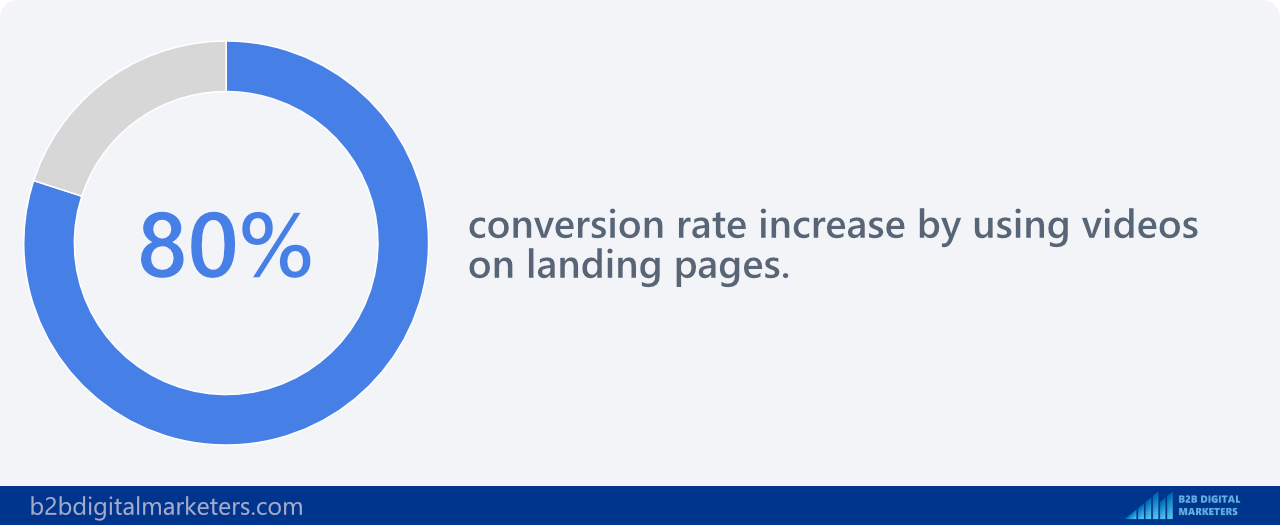
- Improves SEO: Google’s algorithms favor content that engages viewers, and video does just that. Websites that include video content have a much higher chance of ranking on the first page of Google’s search results. Also, YouTube, being the second largest search engine and owned by Google, can be an excellent platform for SEO. Google has recently launched Google Perspectives, a new feature that shows videos from Reddit, YouTube, and other social media platforms in search results. This can help you reach a wider audience and improve your SEO.
With all that being said, digital marketing has been changing and lots of new digital marketing trends had surfaced. And video marketing seems to becoming one of the most effective digital marketing strategies to increase business revenue.
2. Email Marketing
Another very effective and increasingly important digital marketing strategy is email marketing.
Effective email marketing converts prospects into customers and turns one-time buyers into loyal, raving fans. This strategy can encompass different types of emails, including newsletters, promotional campaigns, personalized offers, announcements, and more.
Email marketing is an essential strategy as you are owning the users’ information and you don’t need to rely on the mercy of any platform to drive your traffic wherever you need them.
In fact, email marketing is a critical component of any digital marketing plan, and here are the three biggest benefits and reasons why you need to start with email marketing:
- High ROI: One of the greatest advantages of email marketing is its cost-effectiveness. For every dollar you spend on email marketing, you can expect an average return of $40-$44, according to many studies. This high return on investment makes it an essential strategy for businesses of all sizes.
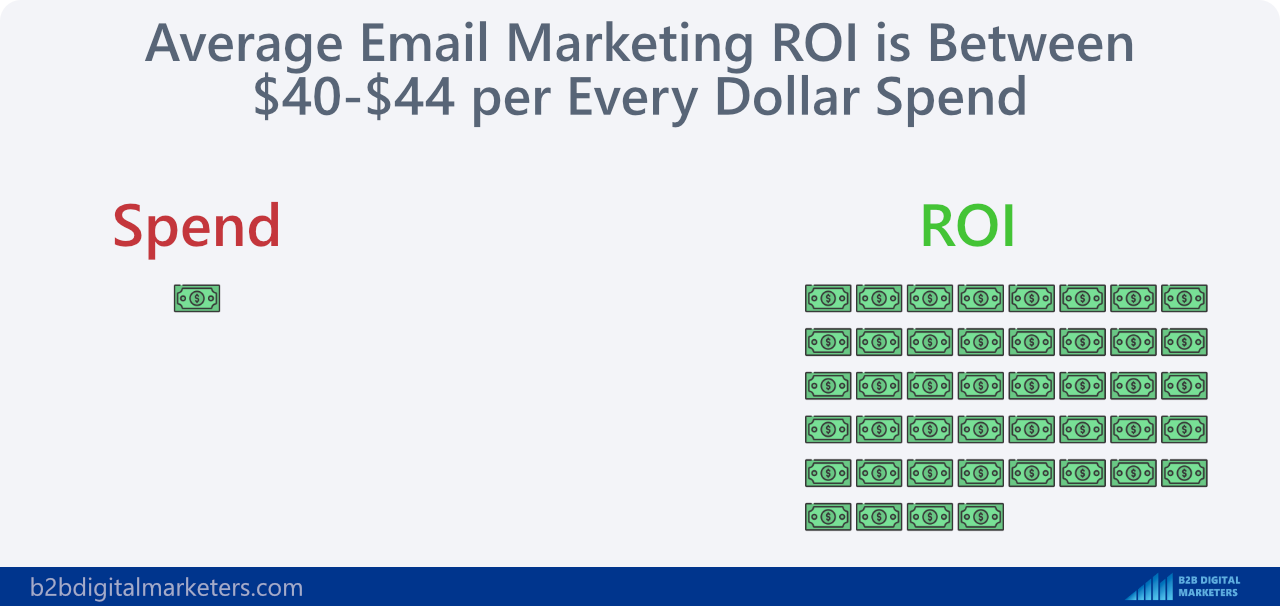
- Direct and Personalized Communication: Email allows you to land directly into a user’s inbox and communicate on a more personal level. In fact, 75% of email recipients open emails that are personalized with their name, and personalized emails deliver 6x higher transaction rates. (Source) And I could spit out even more statistics proving how email marketing is amazing, but the point is, you are owning this media and nobody can take it from you overnight, unlike social media or search engines.
- Builds Strong Customer Relationships: Email marketing is a two-way street. Not only can you use email to send information to your subscribers, but you can also use it to collect feedback and build relationships. By asking questions, responding to comments, and offering support, you can show your subscribers that you care about them and that you’re committed to providing them with a good experience.
With that being said, email marketing is an important and effective marketing channel for businesses of all sizes. It’s a cost-effective way to reach your target audience, it’s highly targeted, and it’s a great way to build relationships with your customers. If you’re not already using email marketing, I encourage you to give it a try. You won’t be disappointed.
3. Marketing Automation
The next highly effective digital marketing strategy is marketing automation. In fact, with AI coming in, marketing automation is becoming even more effective.
Marketing automation refers to the use of software or technologies to automate repetitive marketing tasks.
This strategy is often used in tasks such as email marketing, social media posting, and even ad campaigns, not only for efficiency but also for a more personalized experience for customers.
The automation can trigger actions based on specific criteria like behavioral cues or user feedback.
And marketing automation has become an indispensable tool for busy marketers and I personally cannot imagine running marketing campaigns without the use of marketing automation tools and here are three reasons why is that:
- Marketing automation saves time and money: According to a study by MarketingSherpa, 74% of marketers who use marketing automation say it saves them time. This is because marketing automation can automate many of the repetitive tasks that marketers often spend hours on, such as sending email campaigns, creating landing pages, and managing social media.
- Marketing automation helps you reach more customers: 80% of marketers believe marketing automation generates and converts more leads and 73% of marketers who use marketing automation report an increase in sales. Marketing automation can help you reach more customers by segmenting your audience and sending them targeted messages.
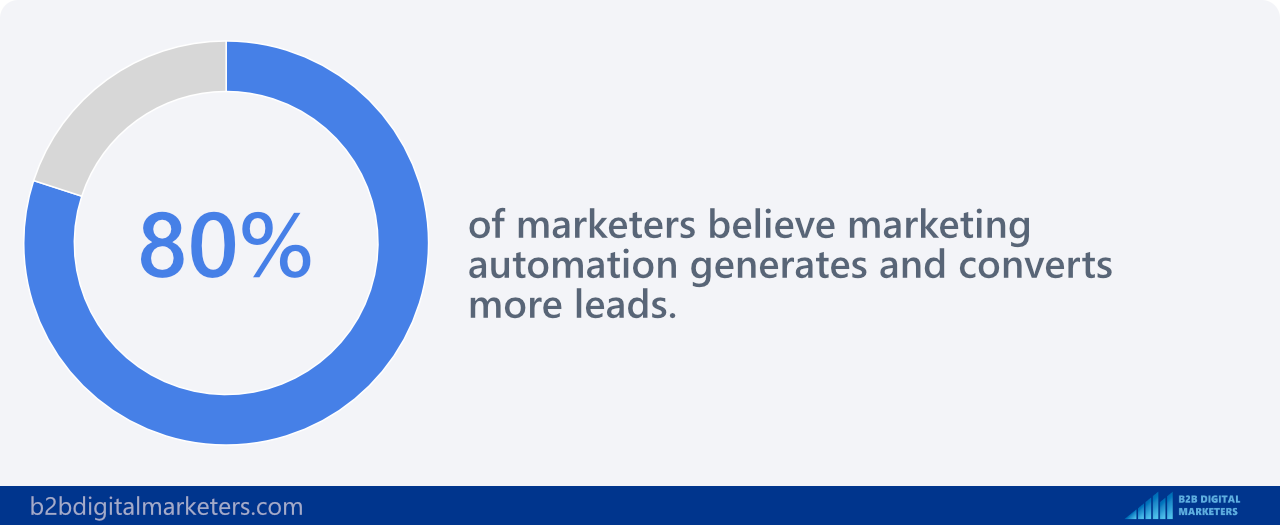
- It helps you to enhance your customer journey: With marketing automation, you can map out the customer journey and deliver relevant content at each stage. It allows you to nurture leads more effectively, resulting in higher conversion rates and improved customer relationships.
With that said, marketing automation brings efficiency, allows personalized communication at scale, and enhances the customer journey by delivering the right content at the right time.
4. Online Advertising
As online platforms such as social media, forums, and now even search engines are becoming greedy with sending their traffic to our websites, online advertising is becoming one of the few ways how we can still drive users to where we need them to go.
And there are a variety of formats we can use such as banner ads, search engine ads (like Google AdWords), social media ads (like LinkedIn or YouTube advertising), native advertising, and more.
And because it’s becoming harder for digital marketers to drive users where they need to, Online advertising plays a crucial role in a comprehensive digital marketing strategy.
And here are three main reasons why online advertising is essential and you should start with it beside what I just told you:
- It is a cost-effective way to reach a large audience: Online advertising provides businesses with a broad and global reach. With estimated 5 billion internet users, you can essentially reach anybody that could be potentially interested in your products or services. And the cost of online advertising is much lower than traditional advertising methods, such as print, television, and radio.
- Online advertising offers targeting and personalization: One of the greatest advantages of online advertising is the ability to target specific audiences. You can tailor your ads based on user’s interests, behavior, location, gender, and more. Online advertising allows businesses to create personalized messages that appeal to specific customers. This can help businesses build relationships with their customers and drive sales.
- It has real-time analytics and adjustments: Online advertising platforms provide real-time analytics, allowing you to see how your ads are performing and make adjustments on the fly. Additionally, online advertising platforms provide AI algorithms to improve your performance and give you better returns, making it a virtually easy way to make money online.
In conclusion, online advertising is an essential digital marketing strategy, especially, when online platforms are clinging to their users and guarding them from ever leaving their platforms unless you pay.
But even that, they still trying to keep their users and “recommend” you use their features to get sales, and conversions without getting their users to leave the platform.
5. Content Marketing
Another important digital marketing strategy is content marketing.
And I know what you want to say!
“With AI, everybody can produce so much content, that it makes it ineffective and useless”
And you’re right!
AI made content marketing even more oversaturated, however, it also made it “same”, not unique.
You can tell when somebody produces content with AI and when somebody produced content with their own brain, uniqueness, and creativity.
It’s different, fun, and more engaging.
And people will still consume content, but this is when human-produced content will become a competitive advantage and get you even more attention and loyal followers than before AI content.
Because before everybody had to produce their own, unique content.
We had to think about it and for that, everybody produced their own special content.
But now, everybody is using AI content marketing, thus, everybody is basically the same.
But when businesses, influencers, and content creators create unique, human-based content, it will be so different, that people will keep coming back to them to get more of it, because it’s already so hard to find human-created content.
Therefore, content marketing will be still effective, in fact, if done right, it will be so effective, that your branding and loyal base will grow exponentially!
Just because as I said, everybody produces “SAME AI content” and users will have to search extra hard to get authentic, human content, and when they find it, they’ll hold on to it.
6. SEO
Alright, the next on our list of digital marketing strategies is search engine optimization (SEO).
If you’re not sure, what’s SEO, then Search Engine Optimization (SEO) is the practice of optimizing websites to make them reach a high position in the search results of search engines like Google and Bing using different SEO techniques and SEO best practices.
The future of SEO is changing rapidly as search engines become more sophisticated and use artificial intelligence to understand user intent. In the past, SEO strategy was largely focused on keyword research and link building.
However, as search engines become better at understanding natural language, these tactics are becoming less effective.
AI is already having a major impact on SEO. Search engines are using AI to understand user intent, identify high-quality content, and rank websites in search results. As AI continues to develop, it will have an even greater impact on SEO.
Additionally, AI-written answers often will appear in featured snippets, also known as “position zero” in the search results. Therefore, we will need to optimize our content to appear in these snippets, as they’re often the first thing a user sees in response to a query.
Not only that, but Google’s E-E-A-T principles (Experience, Expertise, Authoritativeness, Trustworthiness) will become even more important. AI can assess the quality of content better than ever, meaning businesses will need to focus on these principles to rank well.
And in the future, SEO will also need to focus on building relationships with other websites and influencers. This will help to improve the visibility of your website in search results. SEOs can build relationships by guest blogging, digital PR, building relationships with influencers, and participating in online forums.
But this is all speculative and the future of SEO is still uncertain, but it is clear that the landscape is changing rapidly. SEOs who want to stay ahead of the curve will need to adapt to these changes and focus on creating high-quality content, most likely in the form of videos, that answer user questions.
7. Website Marketing
Website marketing refers to promoting a website to bring more visitors. These strategies include search engine optimization (SEO), search engine marketing (SEM), content marketing, social media marketing, email marketing, and more.
It’s all about increasing visibility and making your website more accessible to those who are searching for what you offer.
And while as I said, social media and even search engines are trying to limit getting their users to visit your website and with AI search this will get even harder, it’s still important to have a website.
The reasons for that is because:
- Your website is the main source of leads and sales: By offering valuable content, such as blog posts, e-books, and white papers, you can attract visitors to your site and encourage them to take action, such as signing up for your email list or making a purchase. A study by McKinsey found that companies that invest in website marketing generate 50% more leads than those that don’t.
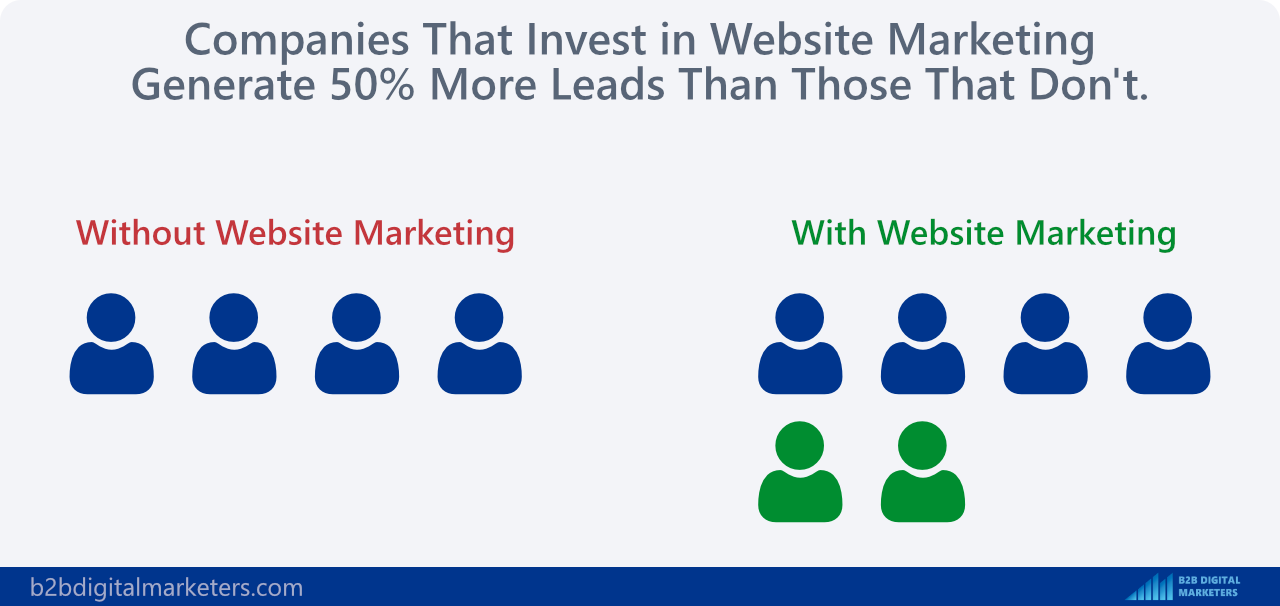
- You can deliver a better customer experience: By providing clear and concise information about your products and services, you can help customers to find the answers they need without having to call customer service.
- You can increase brand awareness: While all these online platforms limit the number of users they allow to leave their platform, your website will still play a major part in getting visibility and awareness for your brand. As informational queries lose significance, commercial and transactional ones are gaining more importance. This shift necessitates a change in focus – from providing information to optimizing for commercial and transactional intent, to draw more relevant users to your website.
In conclusion, website marketing can help create a strong digital presence, increase visibility and accessibility, and convert visitors into customers.
8. Chatbots
The next on our list of essential digital marketing strategies are chatbots.
Chatbots involve using artificial intelligence to interact with customers in real time on your website or through various digital platforms. Chatbots can be programmed to respond to common queries and provide personalized customer service.
And with AI being infused within chatbots, these bad boys are finally becoming a useful thing, something that we imagined when they first came.
For example, AI-infused chatbots can handle customer inquiries at any time, providing immediate responses. Unlike traditional customer service models, these advanced chatbots can learn from past interactions, improving their ability to resolve issues over time.
Or AI chatbots can understand and respond to multiple inquiries at the same time, significantly increasing efficiency. They can analyze vast amounts of data from your website, social media, past interactions, and CRM to provide accurate responses and solutions, leading to a faster resolution of customer queries.
And lastly, AI chatbots can analyze customer behavior and preferences to deliver highly personalized experiences. They can offer tailored product recommendations, send personalized messages, and even predict customer needs based on past interactions to increase sales.
Additionally, they can take information from potential leads and pass it to your sales, while also providing relevant information to them, making these guys a lead generation machine.
Overall, chatbots will become an essential part of your digital marketing strategy and I am really excited about that!
9. Influencer Marketing
Influencer marketing is becoming more and more effective and popular among brands to get noticed.
And with AI search, this digital marketing strategy is becoming even more important to get noticed online.
These influencers can range from high-profile celebrities to micro-influencers with a dedicated and engaged following.
In fact, Influencer marketing is often more cost-effective than traditional advertising. This is because influencers charge a fraction of what TV networks and other traditional media outlets charge for advertising.
During a survey carried out among marketers from Germany, the United Kingdom, and the United States, 60 percent of respondents said they believed influencer marketing had a better return on investment (ROI) than traditional advertising.
And on average, businesses generate $6.50 in revenue for every $1 invested in influencer marketing. (Source)
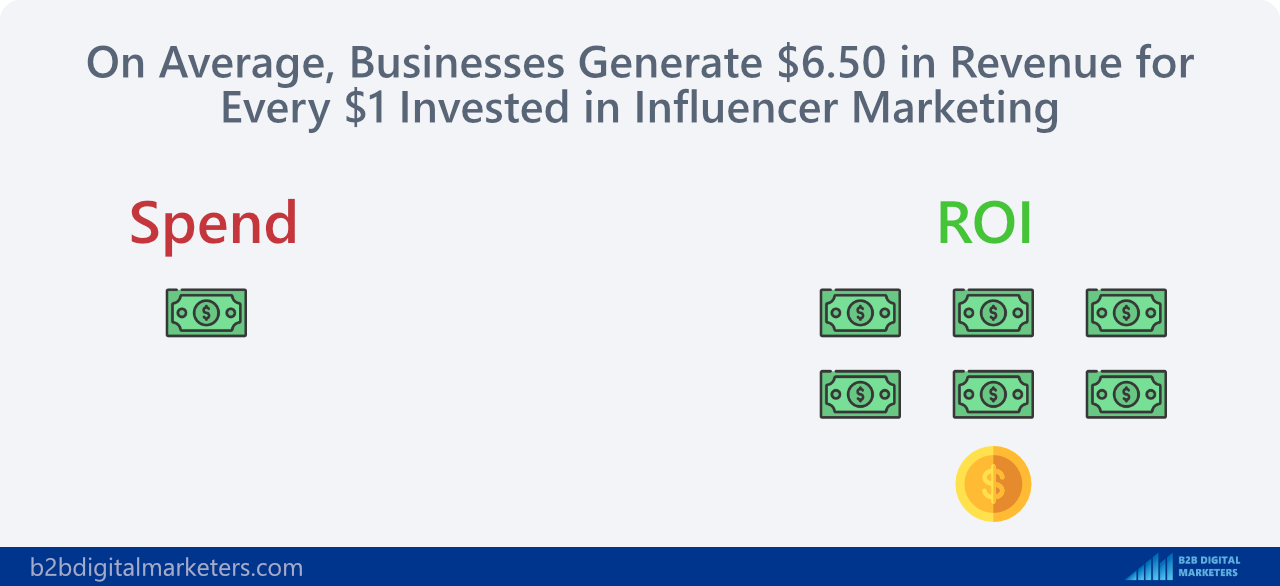
Additionally, Influencers have built strong relationships with their followers who trust their recommendations. Having an influencer endorse your product or service can lend credibility to your brand and help overcome skepticism or resistance.
And lastly, Influencers have large followings on social media, which means that brands can reach a wider audience through influencer marketing at a much affordable price with an average price between $100-$1,000 per post.
Compared to having commercials on TV that can cost between $50,000-$200,000.
All in all, influencer marketing is becoming ever more important and effective and it can be an excellent way to reach your target audience.
10. Referral Marketing
Referral marketing is a strategy that uses recommendations and word of mouth to grow a business’s customer base through the networks of customers, bloggers, and influencers.
Referral marketing can be encouraged through various incentives like discounts, cash rewards, or free products for each referral that leads to a new customer, and it’s one of the best SaaS lead-generation strategies you can currently use.
In fact, Referrals are more likely to convert than other leads. According to Adobe, a referral is by far the highest acquisition channel for conversion rate with an average CV of 3.74% compared to cold email marketing only 0.19%.
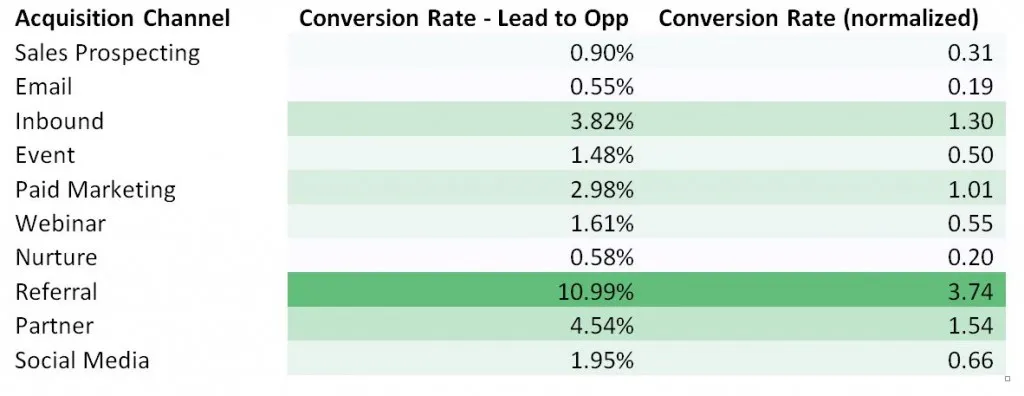
Also, referrals are more valuable than other leads. Referred customers bring you a 25% higher profit margin, the Lifetime Value of a referred customer is 25% higher than that of other customers, and customers acquired through referrals spend 200% more than the average customer. (Source)
And lastly, referral marketing is a cost-effective digital marketing strategy. For example, for B2B software and services companies, referral marketing helps to boost their revenue by up to 5x.
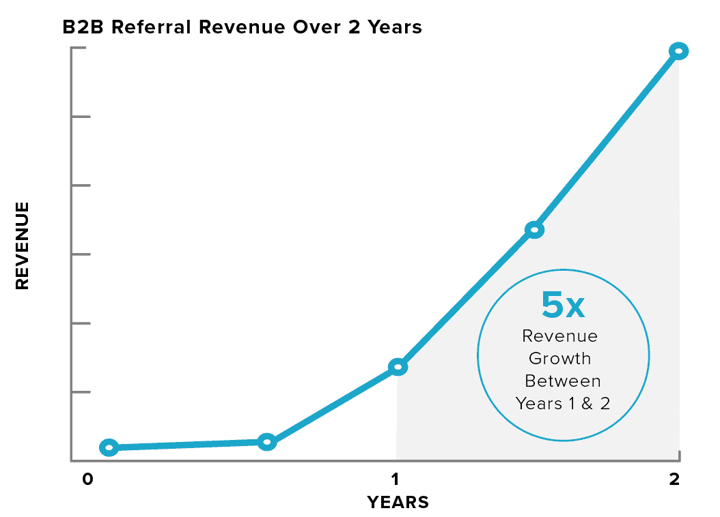
Whereas for eCommerce the revenue can grow by up to 3x.
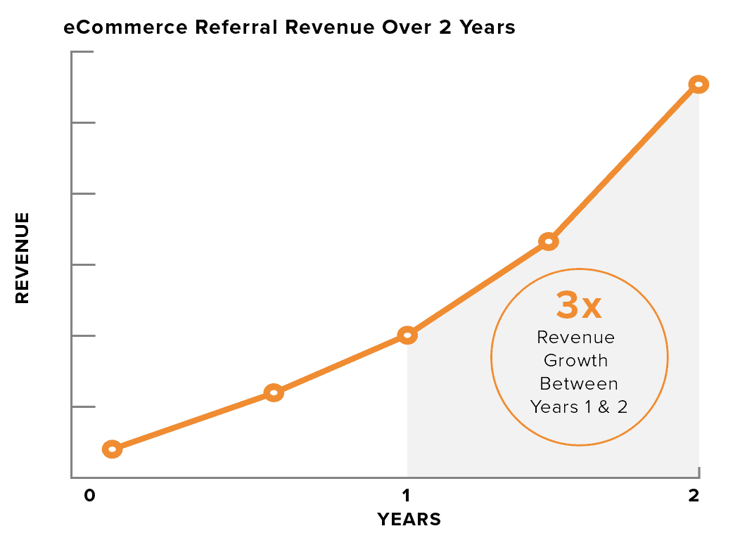
With that being said, referral marketing is one of my favorite digital marketing strategies and when done right, it can be one of the higher nor the highest revenue-growing channel!
11. Online Event Marketing
Another digital marketing strategy growing in importance is online event marketing.
Online event marketing is the promotion of your brand, product, or service through virtual events like webinars, live streams, virtual conferences, or online workshops.
These events can be interactive, allowing real-time communication between the company and the audience, and are often used to educate potential customers, showcase new products or services, or build relationships.
Online event marketing has become a valuable tool in the digital marketing arsenal and virtual events offer unique advantages not available through traditional physical events, as acknowledged by 79% of event organizers. Furthermore, 66% of organizers report higher ROI from virtual events compared to their physical counterparts.
The to\ benefits identified include a surge in event registrations (36%), improved ROI (26%), and enhanced attendee engagement (25%). (Source)
Organizers commend virtual events for their resilience amidst global disruptions like pandemics, their eco-friendly nature, cost-effectiveness, and their pivotal role in the events industry. Thus, the shift towards online event marketing not only aligns with current circumstances but also offers significant benefits that enhance overall marketing strategies.
In conclusion, online event marketing can help you reach a wider audience, is cost-effective, and can generate qualified leads.
12. AI Digital Marketing
And the very last digital marketing strategy on this is list AI digital marketing.
When we are talking about AI digital marketing, it refers to the use of artificial intelligence technology in executing and enhancing digital marketing strategies.
Whether it is for analyzing data, writing content, improving our results, improving our productivity, lowering the cost, or for thousands of other use cases, AI in digital marketing will be essential to effectively do marketing and stay ahead of the competitors.
This highlights the importance of digital marketing courses that provide training on integrating AI tools into marketing strategies.
With AI digital marketing tools we can deliver more personalized results, increase our productivity by up to 10x, do more with less and ultimately drive higher ROI from the marketing.
Therefore, it’s essential that you are following the latest AI digital marketing trends as well as keep trying to find relevant and suitable AI digital marketing tools that could help you with your marketing and increase your revenue.
For example, using tools like Scalenut will help you to produce SEO, email marketing, social media marketing, and other type of content much faster and better, resulting in higher brand awareness and customers without the need of hiring extra marketing staff.
Or using tools like AdCreative can help you produce AI banners much faster at an affordable cost, resulting in faster testing and improving your advertising budget, ultimately getting more ROI from your advertising budget.
And there are hundreds of AI marketing tools that can help with your marketing. So, it’s important that you actively search for relevant AI tools to solve your problems, before you start hiring new marketing staff.
Integrating Different Strategies: A Holistic Approach
While I have presented 12 of the best digital marketing strategies that you can currently use, the truth is, the most effective approach is omnichannel marketing.
Omnichannel marketing means creating a unified and cohesive customer experience across all channels and platforms your customers might use to interact with your brand. This includes your website, social media, email, content marketing, SEO, PPC, and even offline channels like physical stores or events.
Therefore, it’s essential that you choose 3-5 digital marketing strategies and develop those.
The goal is to ensure that you have maximized the potential of your selected marketing strategies before you move to the next one.
Usually, I recommend my clients start with:
- SEO: This is the bedrock of digital marketing. By optimizing your website and content for search engines, you can improve your site’s visibility and attract more organic traffic.
- Google/Bing Advertising: A well-executed Google/Bing Ads campaign can help your business appear at the top of search engine results, driving targeted traffic to your website.
- Google/Bing Remarketing: This strategy allows you to display ads to individuals who have previously visited your website when they browse other parts of the web. It’s a great way to stay top-of-mind and encourage return visits.
- 1-2 Social Media Marketing: The key here is to identify where your target audience spends their time. For B2B businesses, LinkedIn and YouTube might be your best bet. If your audience consists of families and younger adults, Instagram, YouTube, or TikTok could be your platforms of choice.
- 1-2 Social Media Advertising: Similar to social media marketing, your advertising efforts should be focused on the platforms where your target audience hangs out. Tailor your content to match the platform’s style and norms to attract potential customers effectively.
- Email Marketing: An absolute must from the beginning! Building an email subscriber list is a vital part of marketing because it’s the only channel you truly own. It provides a direct line of communication with your audience and allows for personalized messaging and relationship building.
With that being said, your goal is to have a holistic approach to your marketing and then maximize the potential of each channel you have decided to use.
There is no point to keep implementing new strategies, when you’ve not mastered the few channels you have used.
Therefore for the best performance and ROI, it’s important that you choose 3-5 digital marketing strategies and maximize the potential from them.
Future Trends in Digital Marketing Strategies
As we move forward, the digital marketing landscape continues to evolve, driven by advancements in technology and shifts in consumer behavior. Let’s delve into some of these future trends and their implications for your digital marketing strategies.
Emerging Technologies and Their Impact on Digital Marketing
Several emerging technologies are set to revolutionize digital marketing:
- Artificial intelligence (AI): AI is already being used in digital marketing in a variety of ways, such as generating personalized content, optimizing ad campaigns, and automating customer service. In the coming years, we can expect to see even more widespread use of AI in marketing, as it becomes more sophisticated and affordable.
- Extended reality (XR): XR refers to a broad range of technologies that allow users to interact with a computer-generated environment, such as virtual reality (VR) and augmented reality (AR). XR is still in its early stages of development, but it has the potential to revolutionize the way we interact with digital content. For example, VR could be used to create immersive product experiences or to train employees on new skills.
- Social commerce: Social commerce is the buying and selling of goods and services through social media platforms. This trend is growing rapidly, as more and more people are using social media to research and purchase products. In the next few years, we can expect to see even more businesses embracing social commerce as a way to reach new customers and boost sales.
- Consumer privacy: As consumers become more aware of their privacy, businesses will need to find new ways to collect and use data without compromising their customers’ trust. In the next few years, we can expect to see more businesses adopting privacy-focused marketing strategies, such as using consent-based data collection and providing clear transparency about how their data is being used.
- Web3 marketing: Web3 refers to the next generation of the internet, which is built on blockchain technology. Web3 promises to be more decentralized and secure than the current web, and it has the potential to revolutionize the way we interact with digital content and services. Soon, we can expect to see more businesses experimenting with Web3 marketing strategies, such as using NFTs and crypto to engage with their customers.
Predicted Shifts in Consumer Behavior and How to Adapt
Consumer behavior is constantly evolving, and businesses need to be able to adapt their marketing strategies to keep up. Here are some of the predicted shifts in consumer behavior in 2023 and how businesses can adapt:
- Increased demand for personalized experiences: Consumers are increasingly demanding personalized experiences from the brands they interact with. This means businesses need to collect and use data to create tailored marketing messages that resonate with their target audiences.
- The growing importance of social media: Social media is becoming an increasingly important channel for businesses to reach and engage with consumers. Businesses need to create a strong social media presence and use it to share engaging content, build relationships with customers, and drive sales.
- Rise of mobile commerce: Mobile commerce is growing rapidly, and businesses need to make sure their websites and apps are optimized for mobile devices. They also need to develop mobile-friendly marketing campaigns that reach consumers on the go.
- Increased focus on sustainability: Consumers are increasingly concerned about sustainability, and businesses need to address this issue in their marketing strategies. This could mean using sustainable materials, reducing waste, or offsetting carbon emissions.
- Preference for Authenticity: Consumers are turning away from overly polished marketing messages in favor of authenticity. This means that marketers will need to focus on building genuine relationships and trust with their audience.
- The Rise of Micro-Moments: With consumers increasingly making decisions at the moment, marketers will need to be there and be useful in these micro-moments.
By staying ahead of these trends and adapting your strategies accordingly, you can ensure that your digital marketing remains effective and relevant in the years to come.
Here are some specific tips for adapting to the predicted shifts in consumer behavior in 2023:
- Use AI to personalize your marketing: AI can be used to collect and analyze data about your customers to create personalized marketing messages that resonate with them. For example, you could use AI to recommend products to customers based on their past purchases or to send them targeted coupons or discounts.
- Create engaging social media content: Social media is a great way to connect with your customers and build relationships with them. Make sure your social media content is engaging and informative, and use it to share behind-the-scenes looks at your business, promote new products or services, and answer customer questions.
- Optimize your website and apps for mobile devices: More and more people are using their smartphones and tablets to shop online. Make sure your website and apps are optimized for mobile devices so that customers can easily browse your products, make purchases, and contact customer support.
- Highlight your sustainability efforts: Consumers are increasingly concerned about sustainability, and businesses can show their commitment to this issue by highlighting their sustainability efforts in their marketing. This could include using sustainable materials, reducing waste, or offsetting carbon emissions.
- Experiment with new technologies: New technologies, such as AI and AR, are changing the way consumers interact with brands. Experiment with new technologies to stay ahead of the competition and find new ways to engage with your customers.
By following these tips, you can adapt to the predicted shifts in consumer behavior and ensure that your marketing strategies are effective.
Conclusion
We’ve explored an array of digital marketing strategies, representing different types of digital marketing, from SEO and content marketing to email marketing and the integration of AI technology.
All of these approaches serve unique purposes but, when combined effectively, they form an omnichannel strategy that provides a seamless and engaging customer experience.
Embracing emerging technologies and understanding shifts in consumer behavior are crucial to remain relevant and effective in your marketing efforts.
As we navigate the ever-evolving digital landscape, it’s essential for businesses to stay at the forefront.
Whether you’re just starting out or have existing strategies in place, there’s always room for improvement.
Evaluate your current practices, consider the benefits of the strategies discussed, and don’t hesitate to innovate.
Your digital marketing approach could be the difference between blending in and standing out. So, take action today, reassess your digital marketing strategies, and set your business on a path to success.
FAQs about Digital Marketing Strategies
In this section, we are going to answer some of the most commonly asked questions about digital marketing strategies
Digital marketing strategies include Search Engine Optimization (SEO), Pay-Per-Click (PPC) advertising, content marketing, social media marketing, email marketing, influencer marketing, affiliate marketing, online PR, and inbound marketing. These strategies help businesses reach, engage, and convert their target audience online.
The four main marketing strategies are:
- Product Differentiation: Offering unique features or benefits.
- Market Segmentation: Targeting a specific group within the market.
- Cost Leadership: Offering lower prices than competitors.
- Market Penetration: Increasing market share within existing markets.
The 7 P’s of digital marketing are:
- Product: What you sell or offer.
- Price: The cost of your product or service.
- Place: Where and how you sell.
- Promotion: How you communicate your offer.
- People: Your team and your target audience.
- Process: The procedures for customer interaction.
- Physical Evidence: Tangible elements that support your brand.
The five main strategies of digital marketing are:
- Search Engine Optimization (SEO) for improving online visibility.
- Content Marketing for building authority and engagement.
- Social Media Marketing for wider reach and direct communication.
- Email Marketing for nurturing leads and customer retention.
- Pay-Per-Click (PPC) advertising for immediate traffic and conversions.
Related Articles:
- 6 Content Marketing Mistakes Marketers Makes When Starting with Small Business
- B2B Blogging: Best Practices, Tips and Tricks
- 13 Best Email Marketing Tips for B2B Companies
- How to Optimize Digital Marketing for Small Business?
- B2B Digital Marketing Guide for Beginners
- B2B Search Engine Marketing: 6 Steps to Effectively Advertise Online for B2B
Also, check out our digital marketing hub page to find all our digital marketing resources.
Disclaimer
This article was created by Eduard Dziak and may contain affiliate links. The following were used to optimize the article for the best user and search engine experience include:
- SE Ranking for keyword research and on-page SEO optimization
- Surfer SEO for SEO-friendly content creation for users and search engines.
- Jasper AI for grammar correction and information enhancement.
The article is based on the author’s own experience and knowledge, drawn from both their own work and that of their clients, to provide the latest, proven methods.








